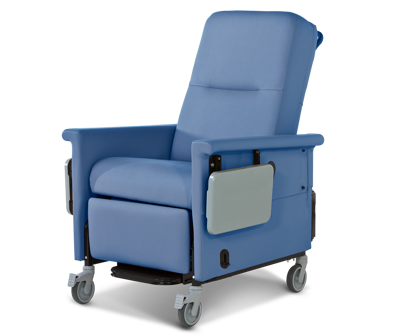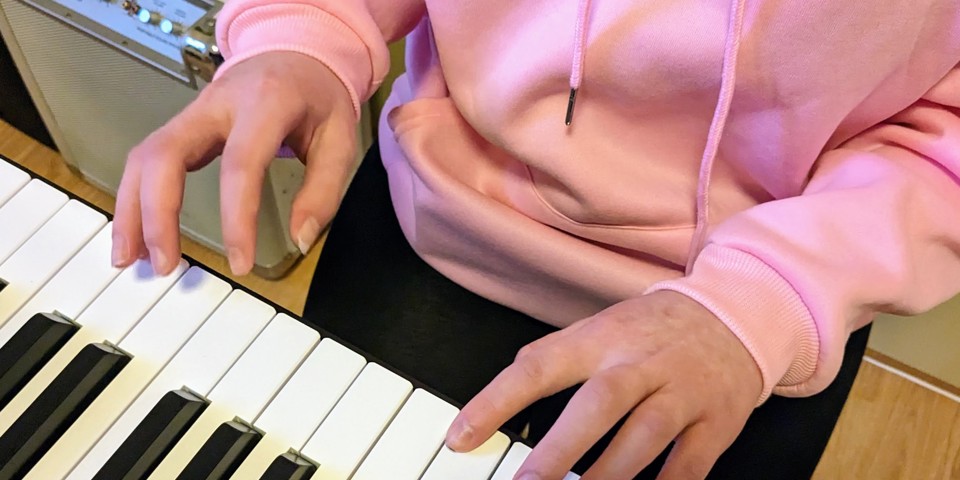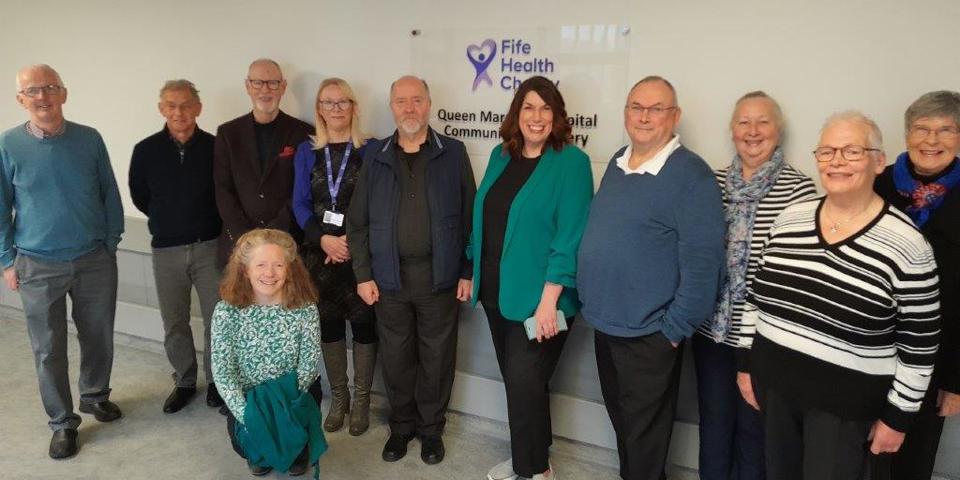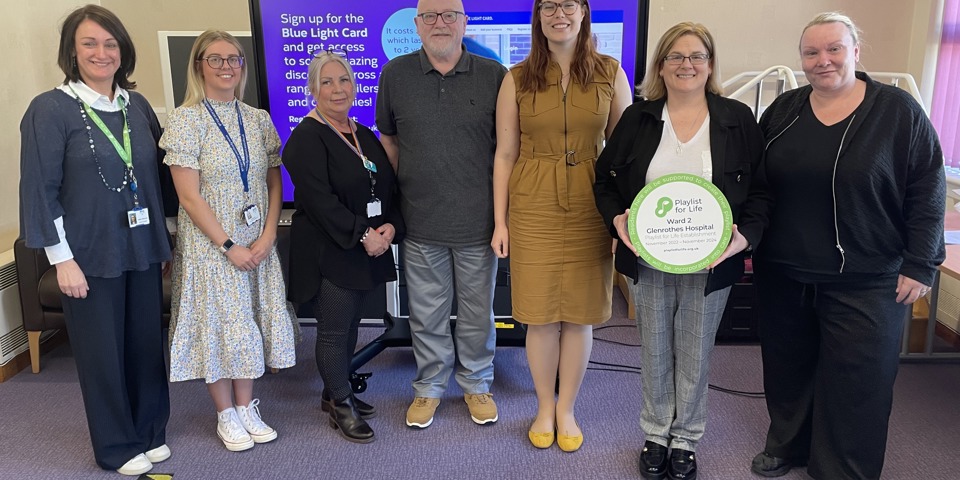- Date awarded: March 2022
- Awarded value: £51,499
- Fund: Various
- Location: Across Specific NHS Fife Units & Wards

Fife Health Charity has funded the purchase of new specialist reclining treatment chairs to improve the comfort of patients and aid staff in carrying out patient care.
During treatment in some units and wards in NHS Fife hospitals, many patients may need to be seated for hours at a time and have restricted mobility as they are connected to an intravenous infusion or due to their medical condition. Haematology and oncology patients, for example, can be seated for up to eight hours during each period of treatment.
Following a pilot project to introduce the new specialist treatment chairs to the Haematology/Oncology unit at Queen Margaret Hospital in Dunfermline for the benefit of patients who are receiving Systemic Anti Cancer Treatments (SACTs), which includes chemotherapy and other treatments, the charity funded the purchase of more chairs for use in NHS Fife hospital units and wards across the Kingdom.
To date, Fife Health Charity has funded the purchase of 23 specialist treatment chairs to improve the comfort of patients during hospital treatment. The upgraded reclining chairs feature high quality pressure reducing foam seating which provides additional support and comfort during treatment. The chairs also have integral folding tables on either side, providing patients with an area for their possessions without taking up additional space.
A further benefit of the chairs is that both sides swing away, enabling patients with mobility restrictions to be more independent during treatment, and giving healthcare staff easier access.
The Difference Our Funding is Making
Following the introduction of the specialist treatment chairs to the Haematology/Oncology Unit, discussion took place with NHS Fife's Associate Directors of Nursing and their senior teams to identify other healthcare areas where patients would benefit from the use of the chairs. Consideration was given to areas where intravenous infusions take place regularly, for example, blood transfusions, and areas where patients prefer to be out of bed, particularly as part of their rehabilitation.
In addition to boosting patient comfort and helping to alleviate potential issues with pressure points due to be seated for extended periods of time, patients' possessions are now more readily accessible thanks to the built-in side tables. Many patients enjoy using digital devices for entertainment or distraction during treatment and the chairs provide a readily available facility without compromising the space required for healthcare staff to administer treatment safely.


